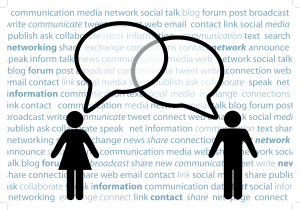Four Tips For Writing Emails That Sell
Email is a one-on-one conversation with your reader, which is part of what makes it so effective for marketing. Thousands of people may see your message (depending on the size of your list), but the conversation ultimately happens in one person’s inbox at a time. Because email feels so personal, your messages need to connect […]
 Email is a one-on-one conversation with your reader, which is part of what makes it so effective for marketing. Thousands of people may see your message (depending on the size of your list), but the conversation ultimately happens in one person’s inbox at a time.
Email is a one-on-one conversation with your reader, which is part of what makes it so effective for marketing. Thousands of people may see your message (depending on the size of your list), but the conversation ultimately happens in one person’s inbox at a time.
Because email feels so personal, your messages need to connect with the people you’re talking to. You need to keep each individual engaged with your message so that your email can sell.
Here are four ways to draw a person into conversation in the inbox.
1. Draw Them In With Killer Headlines
The subject line is your conversation starter. It’s your first impression in the inbox and helps your reader make up his mind whether your email is worth reading or not.
There are plenty of ways to craft a killer subject line that draws your reader in. Ask a question, or tease your message content with a clever play on words. Just make sure that it’s related to your message content — you don’t want your readers to regret opening the message, because they won’t forget it.
2. Tell A Story
People relate to stories better than they relate to a straight-up sales pitch. Stories are entertaining and they give you and your business a relatable personality.
One of the most effective stories you can tell is about your problems — the problems that prompted you to start your business or launch your product. Your reader can likely relate to these frustrations himself, and that establishes the clear need for your services or the niche you designed your product to fill.
A well-crafted story that relates to your reader’s common pains and problems can be more effective than any sales pitch.
3. Get Personal
Getting personal goes hand-in-hand with storytelling. People prefer buying from other people, rather than from impersonal brands.
So go ahead and talk about yourself to build rapport with your audience. Use an automated follow up series to introduce yourself and the people who work with you. That allows your reader to feel like he knows the people behind the brand name.
Email is a one-on-one conversation, and making it more personal makes it feel more natural.
4. Give A Clear Call To Action
After opening and reading your message, your reader needs to do something with it. What do you want them to do? That’s your call to action.
An effective call to action should be clear but not demand too much from your reader. Asking someone to “Buy now!” might be too abrasive and turn him off from making a purchase.
Instead, build from the relationship established in your email. Make the next step simple: a call to “Find out more” or “Read the benefits” is usually more appealing than a demand to buy when they may not be ready yet. Calls to interact with you on social networks or give feedback on your service can get a good response, too.
Your email message is a conversation. And conversations can sell!
Contributing authors are invited to create content for MarTech and are chosen for their expertise and contribution to the martech community. Our contributors work under the oversight of the editorial staff and contributions are checked for quality and relevance to our readers. MarTech is owned by Semrush. Contributor was not asked to make any direct or indirect mentions of Semrush. The opinions they express are their own.
Related stories
New on MarTech